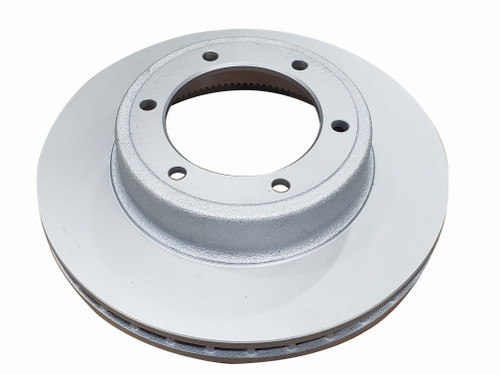Product Description
Rear Disc Brake Rotor - The condition of your brake rotors is crucial for optimal performance and safety. Here are some signs that your brake rotors may need replacement: Unusual Noises: Squeaking or grinding sounds when you apply the brakes could be a sign of worn brake rotors. Vibrations While Braking: Feeling a pulsating sensation or vibrations in the brake pedal when you apply the brakes may indicate warped or uneven rotors. Uneven Rotor Surface: If you notice grooves, scoring, or rough patches on the rotor surface, it could be a sign of worn brake rotors. Such uneven wear can impact braking efficiency and should be addressed promptly with brake and rotor replacement. The cost of delaying could be far higher in terms of safety. There are several types of brake rotors available to choose from: Solid Rotors: Solid rotors are a great choice for everyday driving and provide reliable stopping power. Vented Rotors: Vented rotors, also known as slotted rotors, are designed to enhance heat dissipation, preventing brake fade during aggressive driving or towing. Slotted or Drilled Rotors: Slotted or drilled rotors, are popular among performance enthusiasts. These drilled and slotted rotors dissipate heat and improve wet weather performance. Knowing when to replace your brake rotors is key to maintaining your vehicle's safety and performance. The replacement frequency depends on driving conditions and usage. Regular inspections for signs of wear are essential. Brake rotors should be replaced when their thickness reaches the manufacturer's minimum specification. At Fleet and Auto, we offer a wide range of premium brake rotors designed to meet or exceed OEM specifications. When it's time to replace your brake rotors, trust Fleet and Auto for top-notch products and exceptional customer service. The brake and rotor replacement cost is a worthwhile investment for your safety.Cross References
Product Videos
Fitment
Product Reviews
Warning: This product can expose you to chemicals that are known to the State of California to cause cancer. For more information, visit www.P65warnings.ca.gov.









